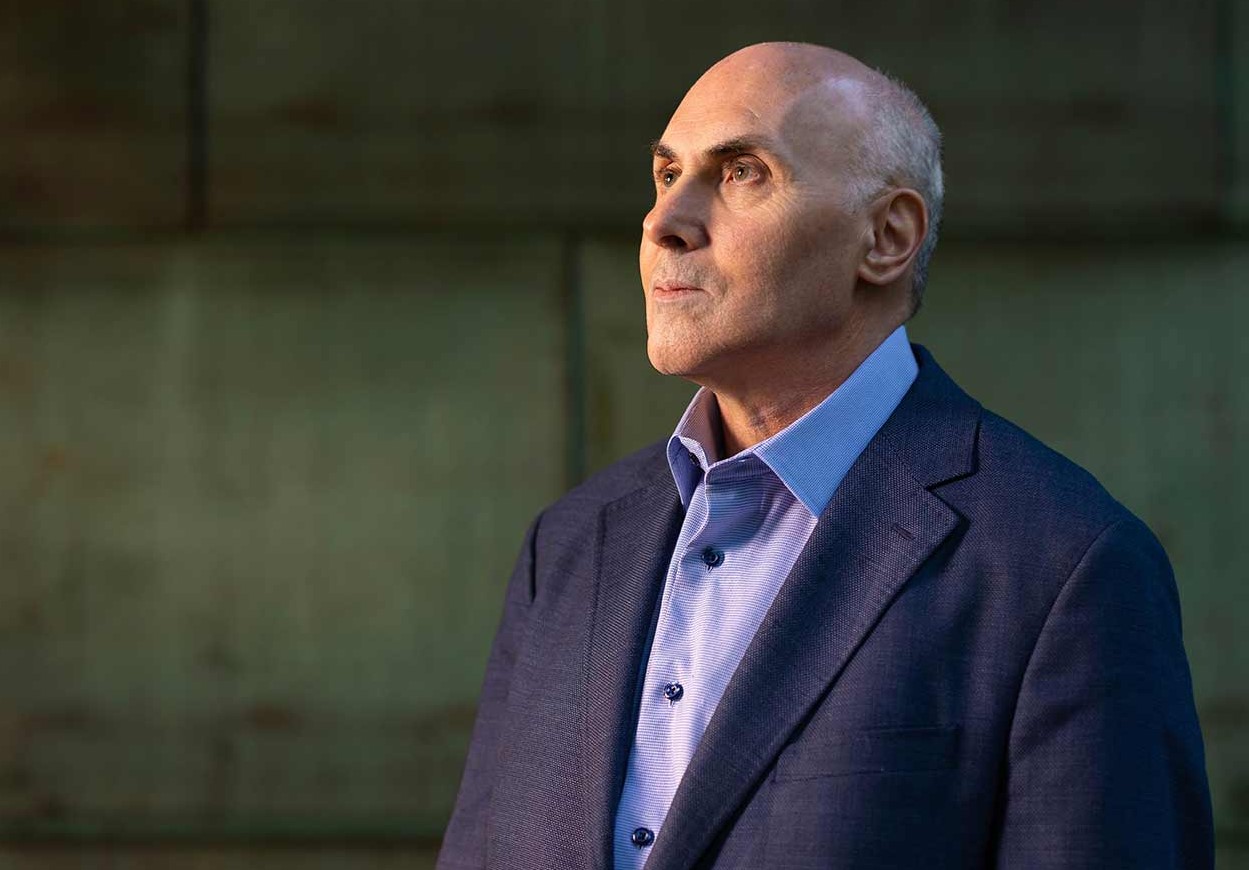A Nobel Laureate's Research Journey Begins at a Brandeis Laboratory

Along with collaborator Katalin Karikó, H'23, senior vice president at BioNTech RNA Pharmaceuticals, Drew Weissman '81, GSAS MA'81, P'15, and H'23 have been awarded the Nobel Prize in Physiology or Medicine for their groundbreaking work in messenger RNA, which led to the life-saving vaccinations that have changed the course of the COVID-19 pandemic.
At this year's Commencement, Brandeis awarded honorary doctorates of science to Weissman and Karikó.
Weissman stated in his remarks, "It is here that I nurtured my passion for scientific exploration in Professor Gerry Fasman's biochemistry lab and honed my critical thinking skills, starting as a freshman in Shapiro Hall." “As a part-time activist, active student, and campus member, I learned the value of cooperation and open-mindedness.”
In February 2021, Weissman and Karikó received the 50th Annual Lewis S. Rosenstiel Award in Basic Medical Research from Brandeis and the Rosenstiel Foundation. Additionally, both received the esteemed Lasker prize for clinical medical research.
"Drew's groundbreaking study on messenger RNA represents a real scientific advance. Not only has he changed the trajectory of a pandemic with his innovative work, but he has also made significant advances in human knowledge and understanding that will influence vaccine development going forward. Ron Liebowitz, president of Brandeis University, described his outstanding feat as "one of the great scientific achievements of our time."
Weissman, a native of Lexington, Massachusetts, attended Brandeis after discovering his early love of science. After completing his pre-medical coursework and studying biochemistry and enzymology, he started a lifetime research career in the lab of professor Gerald Fasman. He participated with other students in racial, environmental, and voting rights action outside of the classroom and lab.
"My education was enhanced by attending Brandeis. Along with politics, psychology, sociology, and music, theatre, and opera, I also studied about sociology. All those things have grown even more in the years after my graduation. Thus, he added in his remarks when receiving the Brandeis Alumni Achievement Award in 2021, "I think it really broadened me as a person." "But I was happiest when I was doing research in the lab, so that was my main focus."
After receiving his bachelor's and master's degrees from Brandeis, Weissman continued on to Boston University to obtain his PhD and MD. Following graduation, Weissman worked on HIV research under the direction of Dr. Anthony Fauci, chief medical adviser to President Joe Biden and director of the National Institute of Allergy and Infectious Diseases. He also completed a fellowship at the National Institutes of Health (NIH). He has been a medical professor at the University of Pennsylvania's Perelman School of Medicine since 1997.
"I'm still a basic scientist, and I always will be," he declared at Virus Wars: The Battle Against COVID-19 and Other Viral Threats, a Brandeis event, in April 2021. The ability to test a concept and determine its viability is the essence of basic science. And you try something different if it doesn't work. And I find a profession in fundamental research to be really fulfilling.
By creating a modified version of mRNA, which carries instructions to cells regarding the production of proteins, and then creating a system to deliver it, Weissman and Karikó were able to deceive the immune system into believing the body is infected with a virus and produce antibodies to create at least partial immunity. This was discovered after extensive research and perseverance in the face of setbacks. Their research served as a foundation for the COVID-19 vaccines produced by Moderna and BioNTech/Pfizer.
As stated by Michael Rosbash, the 2017 laureate of the Nobel Prize in Physiology or Medicine and holder of the Peter Gruber Endowed Chair in Neuroscience, "the successful efforts made worldwide to generate effective vaccines are among the few positive consequences of the current pandemic." The most innovative of them rely on the recently developed messenger RNA technology that Kariko and Weissman invented. This is a fantastic tale of how a little bit of fundamental science effort has had a huge influence on the actual world.
Conventional vaccinations, such those for polio, flu, rabies, chickenpox, or polio, inject a weakened or dead virus to trick the body into thinking it is treating the illness. That method is more costly than creating mRNA, which can be altered to combat various diseases.
“Drew’s pioneering research in messenger RNA is a true breakthrough for science. His remarkable achievement is one of the great scientific accomplishments of our time.”
Brandeis President Ron Liebowitz
Biochemist Carol Fierke, the executive vice president for academic affairs and provost of Brandeis University, said, "The COVID-19 vaccine breakthrough is a great example of how basic science innovations, like the RNA technology pioneered by Weissman and Karikó, can have an enormous impact on advances in the biomedical sciences."
According to Weissman, his experience at Brandeis University studying biochemistry provided him with "insights on how to develop hypotheses — how to think about them, how to develop new lines of research." Instead of finishing in three years, he decided to remain on and obtain a master's degree. The acetylation of DNA, a step in the control of genes, was the subject of his master's thesis.
And Brandeis, he claims, taught him the importance of having a strong community. According to him, pre-med was "an very stressful period... Nonetheless, I had the backing of the professors as well as the students and my friends.
Their desire for our success, in my opinion, is what formed my future. I work with a lot of kids in my lab right now to help them succeed, and Brandeis taught me that," the man stated. What truly stands out in my memory, I believe, are the connections I made at Brandeis and the collegiality and constructive atmosphere there. It was a really welcoming and helpful community.